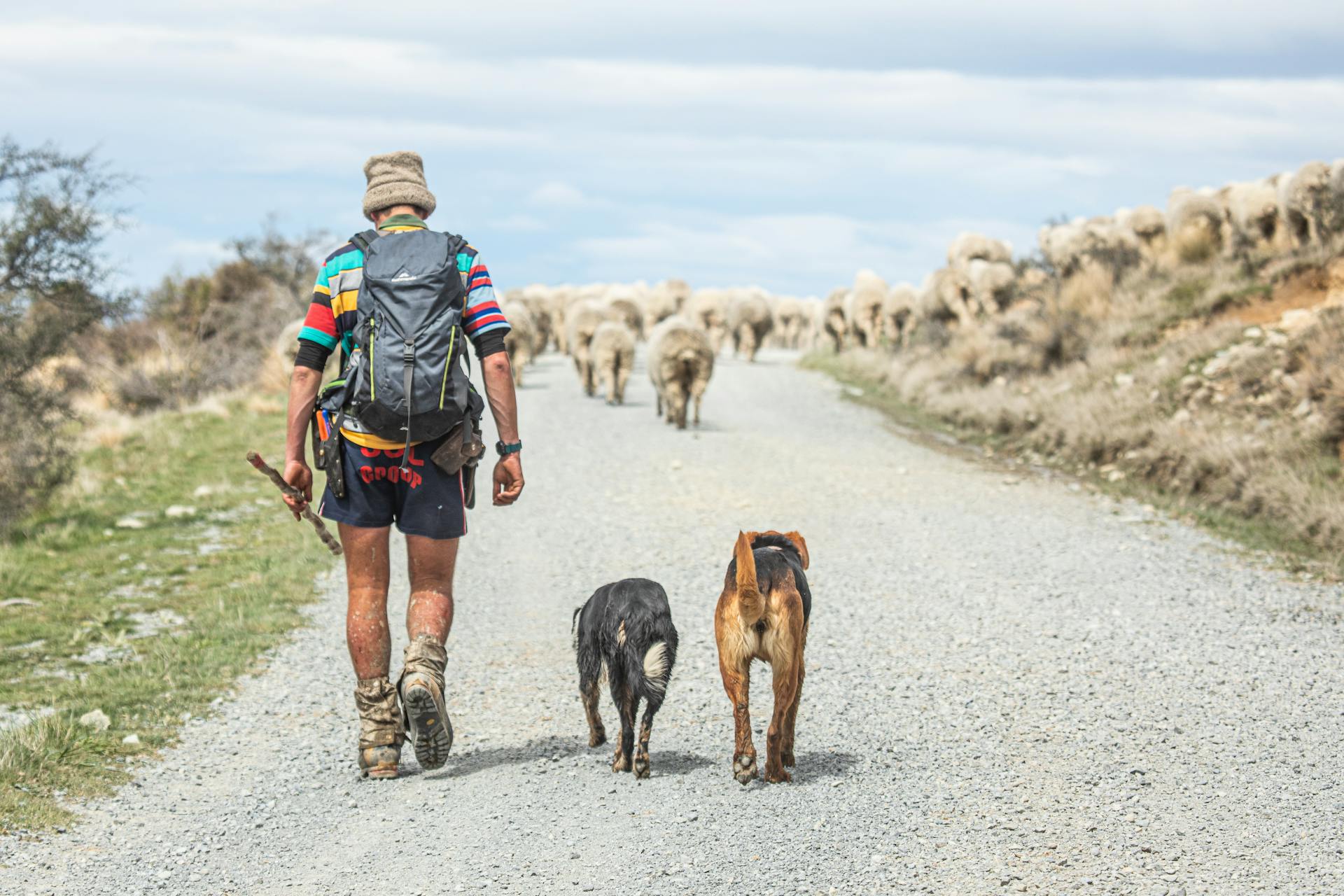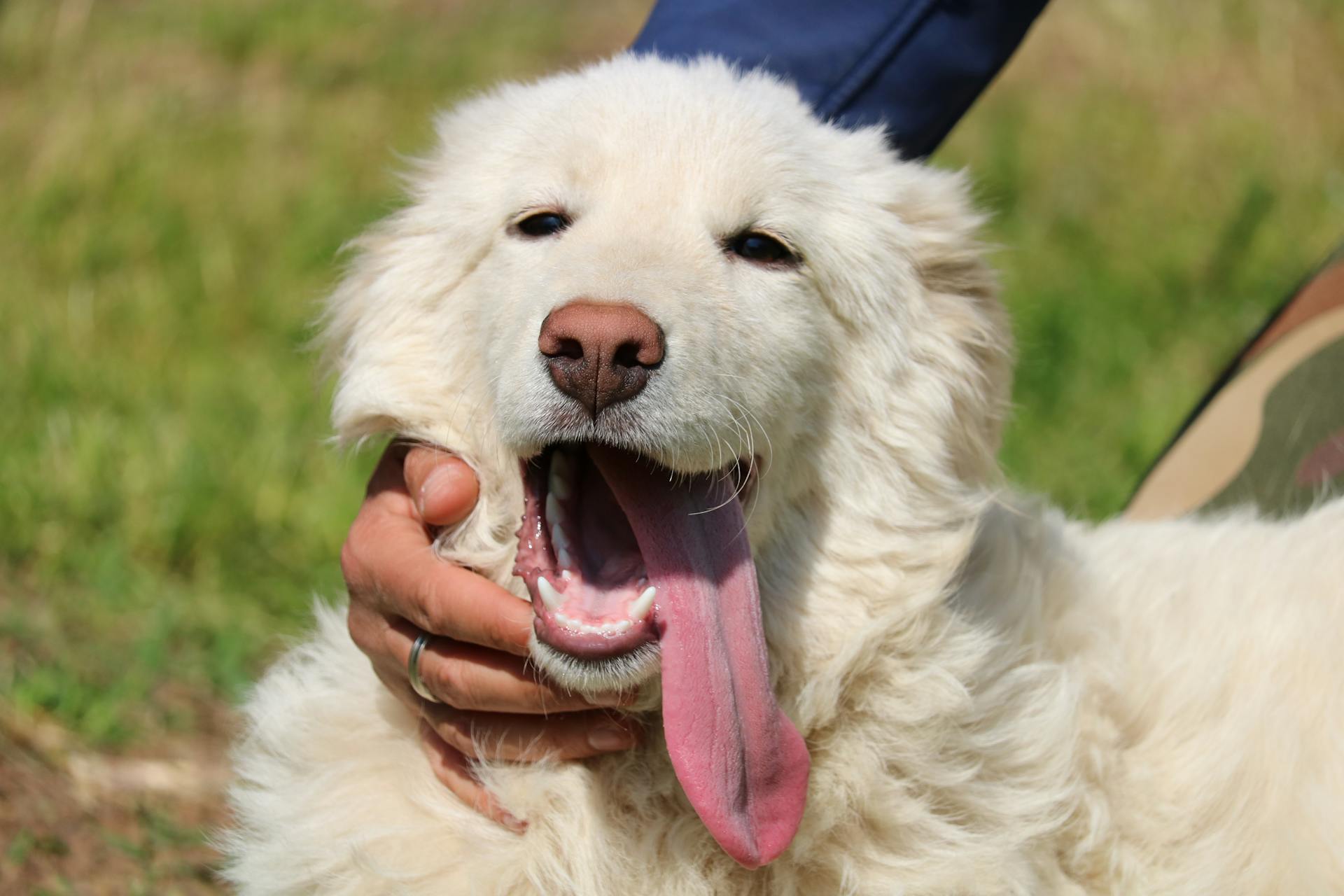
The Big Maremma Sheepdog is an ancient breed that originated in Italy over 2,000 years ago.
Originally bred to guard sheep, this large and powerful dog is naturally suspicious of strangers and will fiercely defend its flock.
They are highly intelligent and trainable, but can be strong-willed and independent, requiring consistent and patient training from an early age.
Their thick, double coat sheds heavily and requires regular brushing to prevent matting and tangling.
Characteristics of the
The Maremma Sheepdog is a large breed that requires regular grooming, with multiple brushings a week and regular trimming of hair in their paw pads. This breed is known for its loyal and energetic nature, making it a great companion for active families.
They thrive in homes with plenty of open space, such as farms, where they can run around and get the exercise they need. In fact, they're best suited to homes with plenty of open space.
Maremma Sheepdogs have a thicker coat that's perfect for cooler climates, but they can handle warmer weather with plenty of shade, shelter, and water. This means they're a great choice for families who live in areas with mild winters and warm summers.
If you're thinking of bringing a Maremma Sheepdog puppy home, be prepared for a lifelong commitment. They bond strongly with their owners, especially children, and will be by your side for years to come.
Here are some key statistics to consider when deciding to bring a Maremma Sheepdog into your family:
- Size: Large
- Traits: Loyal, Energetic, Independent
- Best Suited To: Homes with plenty of open space
- Number of puppies in a litter: 6-9
- Puppy cost: $600-$800
Protection and Work
The Maremma Sheepdog is a natural guardian of livestock, with a strong instinct to protect its flock. At the Old Crowe Farm, they use Maremmas exclusively for this purpose, and have seen exceptional results with zero predator losses.
They're not just effective against 4-legged predators like coyotes, but also give potential 2-legged "predators" reason to pause. In fact, the Maremmas at the farm have been known to favor certain animals, like the large male Maremma, Gunnar, who has a special fondness for the pigs.
Here are some key facts about the Maremma Sheepdog's protection and work abilities:
Multi-Species Livestock Protection
The Maremma Sheepdog is a top-notch guardian for multi-species livestock protection. They're highly effective at safeguarding a variety of animals, including goats, pigs, chickens, turkeys, cows, and even barn cats.
Their exceptional performance and temperament have impressed us at the Old Crowe Farm, where we've used them exclusively for livestock protection. We've had zero predator losses, thanks to our Maremmas' keen instincts and assertive nature.
In fact, our Maremmas have protected our flocks and herds for years, keeping them safe from 4-legged predators like coyotes. They've even given potential 2-legged "predators" reason to pause, thanks to their intimidating presence.
Here are some key benefits of using Maremmas for multi-species livestock protection:
The Maremma Sheepdog's impressive abilities make them an excellent choice for multi-species livestock protection. With their keen instincts, assertive nature, and gentle disposition, they're the perfect guardian for your farm or ranch.
Barking
Our Maremmas are relatively quiet dogs when it comes to barking.
They bark less than our Pyrenees, who barked from sun down to sun up.
Our Maremmas' quiet nature is appreciated by our neighbors.
We've noticed that Maremmas in training, like the 2-month old ones with American Guinea Hogs, are a great example of calm and focused behavior.
Their calm demeanor is a valuable asset for a working dog like a Maremma.
Care and Management
To keep your big Maremma Sheepdog healthy, it's essential to monitor them for potential health issues such as elbow and hip dysplasia. These conditions can be inherited and may not display symptoms at first, so regular X-rays at the vet are crucial for early detection.
Elbow dysplasia, like hip dysplasia, can be caused by abnormal growth and development, and feeding your dog correctly and avoiding overly vigorous exercise while they're young can help prevent these issues.
Maremmas are also sensitive to tick and flea sprays, which can cause itching and irritation, especially if they live outside. Regular baths can help prevent build up and irritations.
Exercise is a must for big Maremma Sheepdogs, requiring around 60 minutes of physical activity each day. This can be broken up into shorter walks, making them perfect hiking or running companions.
Coat
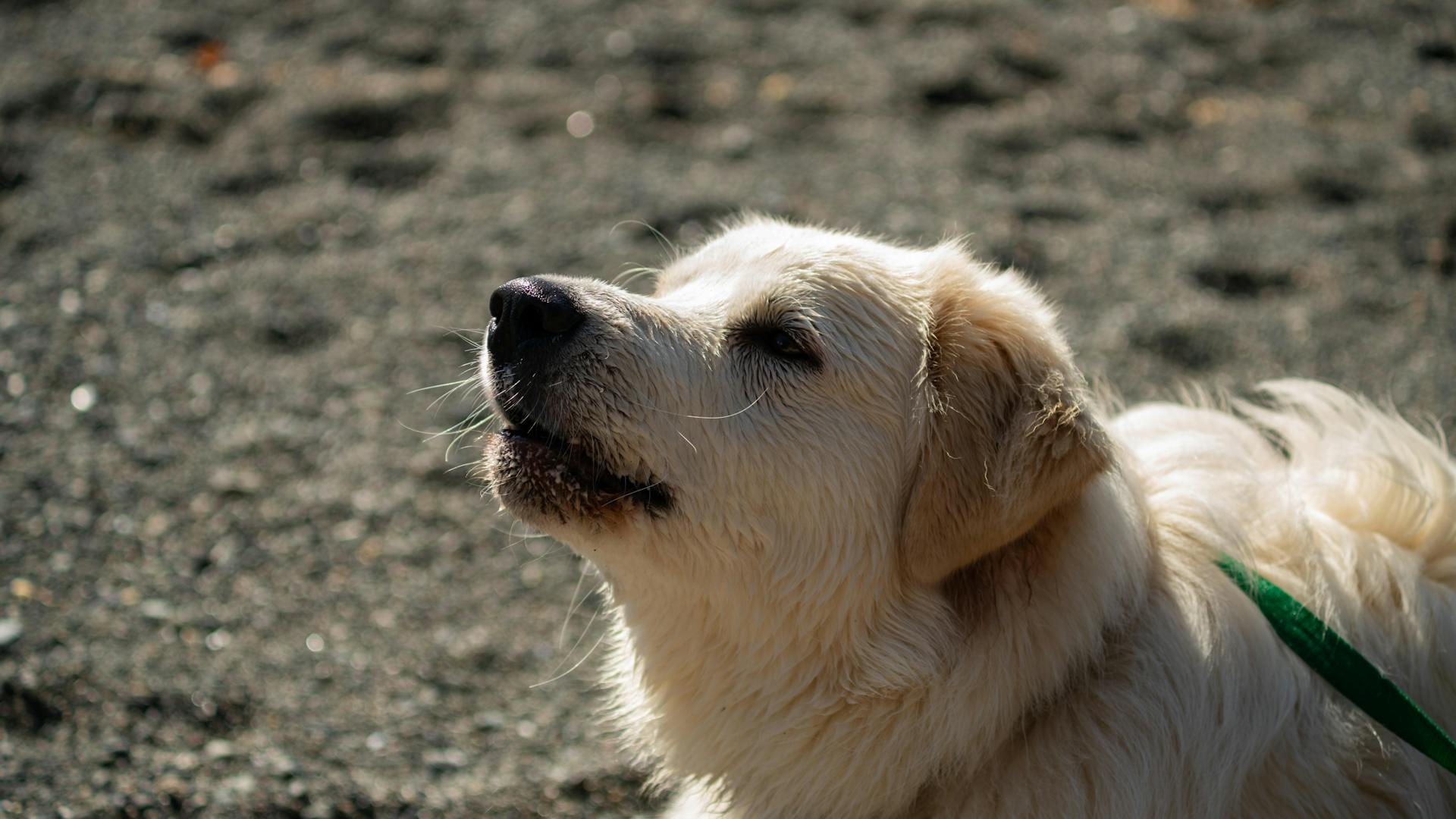
The Maremma Sheepdog coat is a double coat that's long and wavy, making it one of the breed's most distinctive features.
Their coat can be rough and wire-haired to the touch, which is a characteristic that's easy to notice when you pet them.
On average, the Maremma Sheepdog coat is about 3 inches in length, which can make them look quite majestic.
Their coat is also very dense, especially around the neck, where it provides extra protection and insulation.
The coat is shorter on the ears and the face, which helps to keep them cool and comfortable in warmer weather.
Grooming your Maremma Sheepdog regularly is essential to prevent matting and tangling of their coat, which can be painful and uncomfortable for them.
Lifespan
The lifespan of a Maremma Sheepdog is a significant consideration for any potential owner. The Maremma Sheepdog has a life expectancy between 10 to 13 years.
Regular veterinary check-ups can help ensure your Maremma Sheepdog lives a long and healthy life.
Known Health Issues
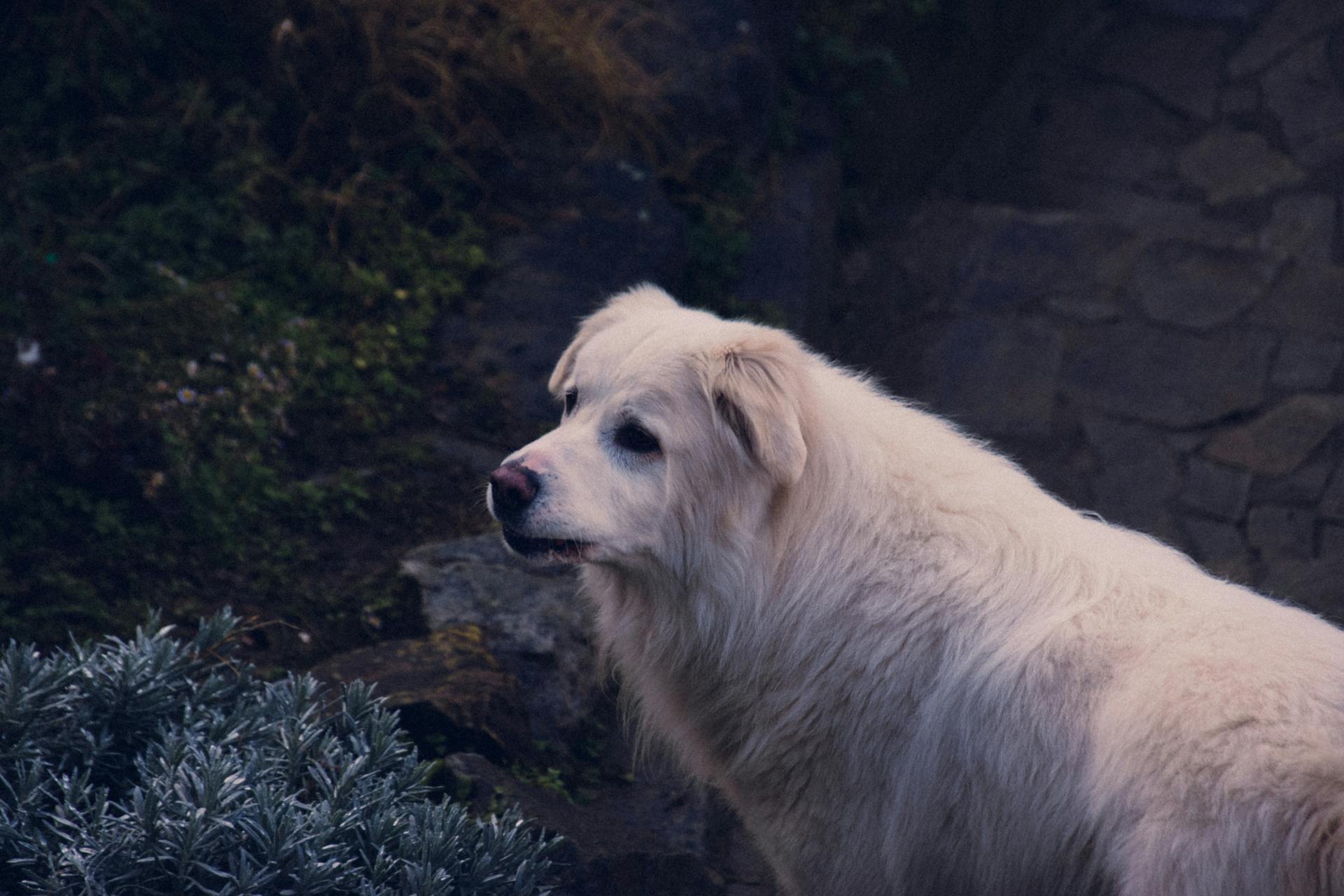
Maremma Sheepdogs are generally very healthy dogs, living long and happy lives. They're not prone to many health issues, but there are a few conditions to be aware of.
Hip dysplasia and elbow dysplasia can occur in Maremma Sheepdogs, particularly in larger breeds. This is often caused by quick growth.
Eye problems, such as cataracts and Progressive Retinal Atrophy (PRA), can also affect Maremma Sheepdogs. PRA leads to blindness due to the loss of photoreceptors at the back of the eye.
Checking with a reputable breeder can help minimize the risk of these health issues, especially eye problems.
Looking After Me
Maremmas are generally healthy dogs, but they can be prone to elbow and hip dysplasia, so it's essential to monitor their health closely.
Regular X-rays can help detect hip dysplasia, which can be caused by an inherited condition where the thighbone doesn't fit properly into the hip joint.
Elbow dysplasia can also occur due to abnormalities during growth and development, so feeding your dog correctly and avoiding overly vigorous exercise while they're young can help prevent these issues.
If this caught your attention, see: Why Is My Dog's Chest so Big?
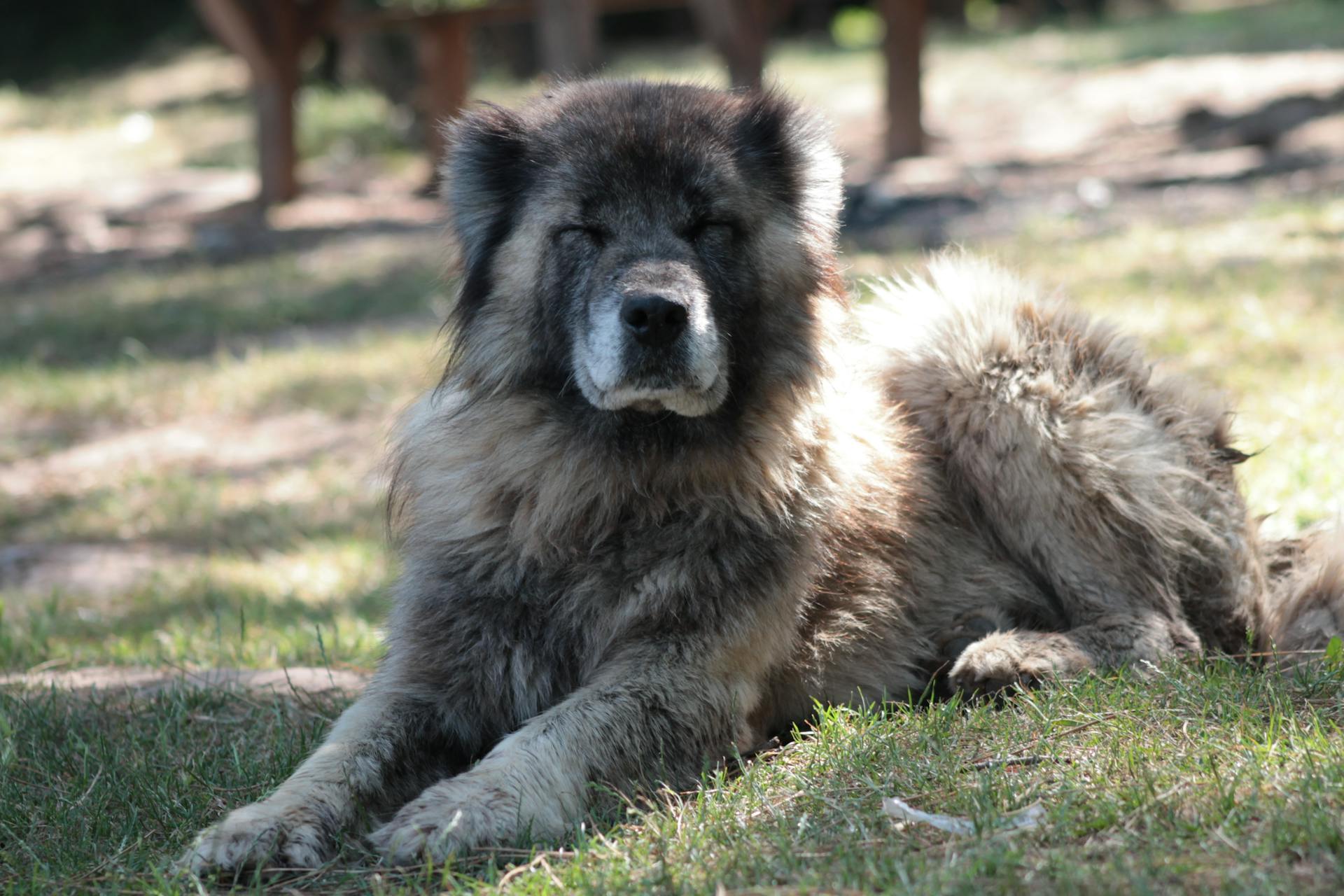
Maremmas are sensitive to tick and flea sprays, which can cause itching, so regular baths can help prevent build up and irritations.
To keep your Maremma healthy, make sure to feed them correctly and avoid over-exercising them when they're young.
They also need regular exercise to stay happy and healthy, which should be around 60 minutes a day, split up into shorter walks.
Best Dog Food
Choosing the right dog food is crucial for your furry friend's health. The ideal dog food should have a balanced mix of protein, fat, and carbohydrates.
High-quality dog food can make a significant difference in your dog's energy levels. A dog that eats a well-balanced diet can run for hours without getting tired.
Some of the best dog food options include grain-free and gluten-free formulas. These types of food are beneficial for dogs with sensitive stomachs.
Dogs that are prone to allergies may benefit from a limited ingredient diet. This type of diet involves feeding your dog a single protein source and a single carbohydrate source.
It's also essential to consider your dog's age and health when selecting a dog food. Puppies require more protein and calories than adult dogs.
Puppies need to eat 3-4 times a day, while adult dogs can eat 2 times a day.
Finding and Owning
Finding a Maremma Sheepdog can be a challenge, as they're a rare breed and not commonly found in the US or outside of Italy. You can search online for possible breeders near you, but make sure to buy from a reputable breeder and visit them in person before making a purchase.
If you do decide to bring a Maremma into your family, be prepared for a loyal and faithful companion. They'll make great watchdogs, but their protectiveness can make them wary of guests.
The Maremma's large size means they need plenty of yard space, so apartment living is not suitable for this breed. They'll also love to roam and play, but can tolerate short periods of time alone to wander the yard.
Family Compatibility
The Maremma Sheepdog is a wonderful addition to any family, but it's essential to consider their needs and personality traits before bringing one home. They are utterly devoted to their family and can be quite affectionate towards those they love.
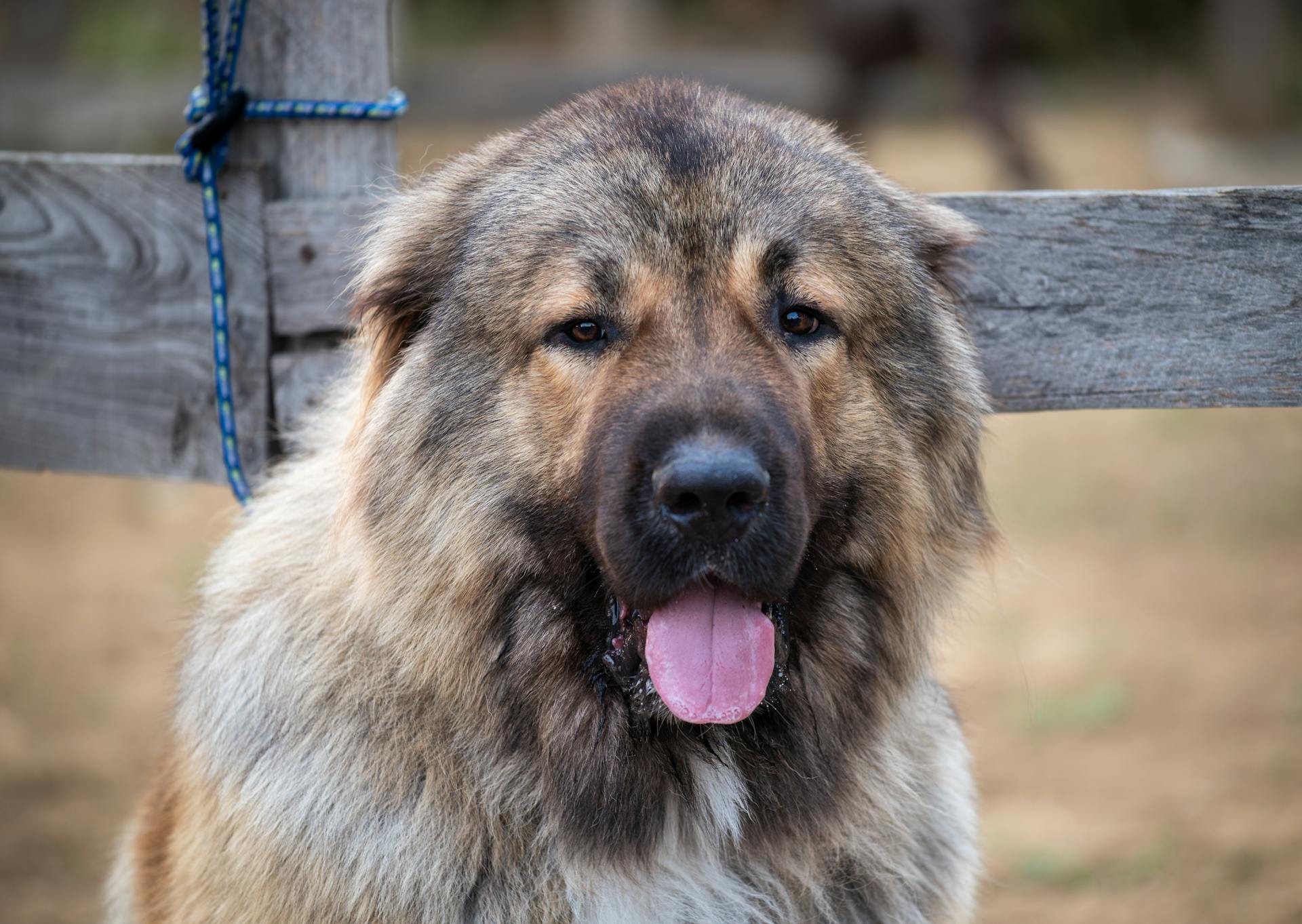
Maremmas get on very well with children and will try to protect them from harm. This is a big plus for families with kids. They also get along with other pets, including dogs and cats, which makes them a great fit for households with multiple animals.
However, Maremmas do require regular exercise, which can be a challenge for busy families. They need at least an hour of your day to take them for a walk and keep them entertained, especially if they're left alone. This is something to consider when deciding if a Maremma is right for your family.
If you're up for the challenge, a Maremma can make a loyal and faithful companion for your family. But remember, they can be wary of guests due to their protective nature, so it's essential to socialize them well.
Here are some key things to consider when deciding if a Maremma is right for your family:
Overall, a Maremma Sheepdog can be a fantastic addition to the right family. With patience, love, and proper care, they can thrive as a beloved member of your household.
How Can I Find?
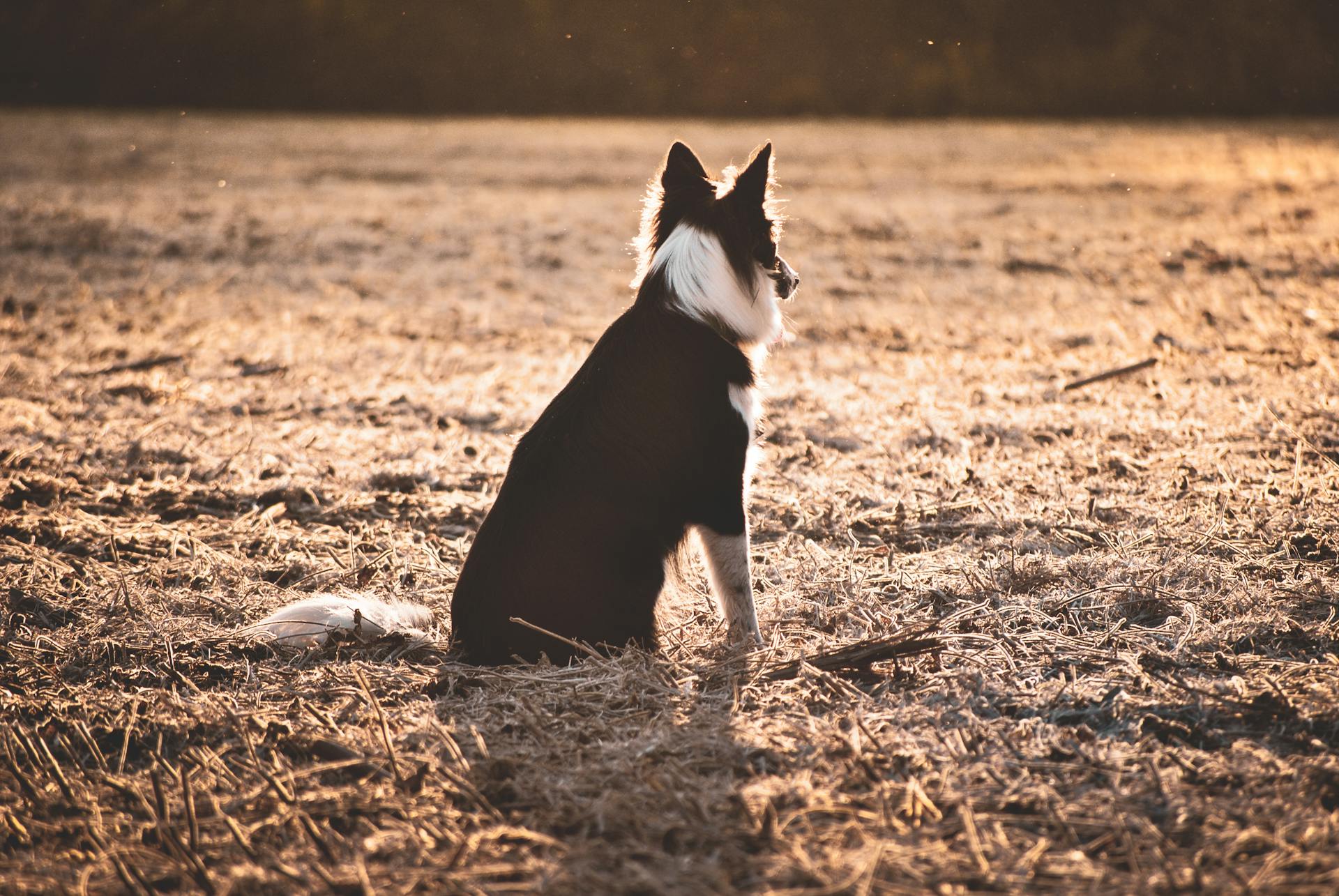
If you're looking to find a Maremma Sheepdog, they're a rare breed, often not seen in the US or outside of Italy.
You can search online for possible breeders near you, but make sure to buy from a reputable breeder.
Always visit the breeder and the dogs before making a purchase to ensure you're getting a healthy and well-cared-for animal.
Frequently Asked Questions
Is Maremma bigger than Great Pyrenees?
No, Maremma Sheepdogs are generally smaller than Great Pyrenees. On average, Maremma males weigh 77-100 pounds, while Great Pyrenees males weigh 100 pounds and up.
Are Maremma dogs affectionate?
Yes, Maremma dogs are known for their affectionate nature, forming strong bonds with people and livestock alike. They are natural nurturers, especially when raised with children.
Sources
- https://oldcrowefarm.com/heritage-livestock/livestock-guard-dogs/about-livestock-guard-dogs/
- https://www.dogbreedinfo.com/maremmasheepdog.htm
- https://bondivet.com/blogs/dog-breeds/maremma-sheepdog-breed-profile
- https://animalcorner.org/dog-breeds/maremma-sheepdog/
- https://www.dogbreedslist.info/all-dog-breeds/maremma-sheepdog.html
Featured Images: pexels.com
